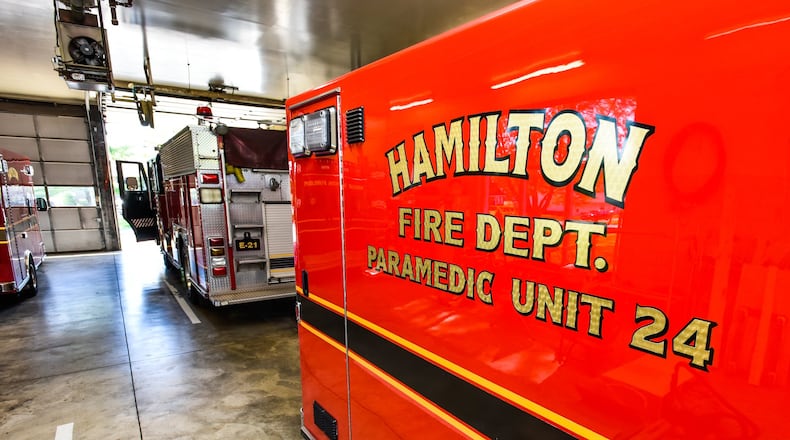“In the five-day period from June 27 through July 1, we had 279 calls,” a 37 percent rise over last year, said Hamilton Fire Chief Mark Mercer.
It’s difficult to know exactly how many of those were heat-related, but Mercer said he has a sense heat was a factor in that jump. Overdoses of heroin and other opioids were not a significant factor in the increase, he said.
“For the last month or so, we’ve been exceptionally busy,” Mercer said. “We’ve had days when we’re over 50 calls, and our typical is 35.
“I think it’s mostly just the heat, people being hot and being too close together, and that causes some stuff for us. Anybody that’s old or has health conditions, if they don’t have air conditioning.
“If you’ve got somebody, especially people that live alone, people should check on them,” he said. “On the family side, particularly elderly, or people that have a medical condition, they should check on them — at the very least, maybe a phone call, and they should stop by once a day to check on them.”
Also, “if people have problems with their utilities, and their electric’s off, or their water’s off, we need to be able to get them someplace where they can take care of themselves and stay cool and hydrated,” Mercer said.
Mandi Alcorn, director of Atrium’s Emergency Trauma Center, said that “Atrium’s emergency department tends to see people exhibiting symptoms of heat exhaustion or heat stroke when temperatures climb dangerously high.”
Heat exhaustion happens before heatstroke, with symptoms including heavy sweating, fast breathing and a fast pulse, Alcorn said. “Heatstroke can be life-threatening because the body’s temperature can get dangerously high – above 106 degrees. Symptoms include dry skin, fast pulse and dizziness.”
For most types of heat illness, people can be treated by finding ways to cool them down, such as getting to a cool, air-conditioned location, drinking plenty of water and/or taking a cool shower or bath. But for heatstroke, “it is important to call 911 immediately because it is a medical emergency and can be life threatening. We encourage friends and family to check on those who live alone, especially older people, when temperatures are dangerously high,” Alcorn said.
Meanwhile, here are tips from the Centers for Disease Control and Prevention on how to prevent heat-related illnesses:
- Wear appropriate clothing, preferably lightweight, loose-fitting and in light colors, so the clothes reflect light and heat, rather than absorb it.
- Stay in air-conditioned areas as much as possible. When a home doesn't have a cooling system, shopping malls, movie theaters and public libraries are good choices.
- Electric fans may make you feel cooler, but when temperatures reach the high 90s, fans won't prevent heat-related illnesses. But cool showers or baths, or going to air-conditioned places are things that can help.
- Be careful about outdoor activities, limiting those times to mornings or evenings, when the day is coolest.
- Reduce exercise when it's really hot.
- Wear sunscreeen, because sunburn makes it more difficult for the body to cool down.
- Do not leave children or animals in cars, which can become much hotter than the outdoor temperatures.
- Drink plenty of fluids. Also, keep your pets hydrated, and leave water for them in shady areas.
- Avoid very sugary or alcoholic drinks.
- Replace salt and minerals.
About the Author
